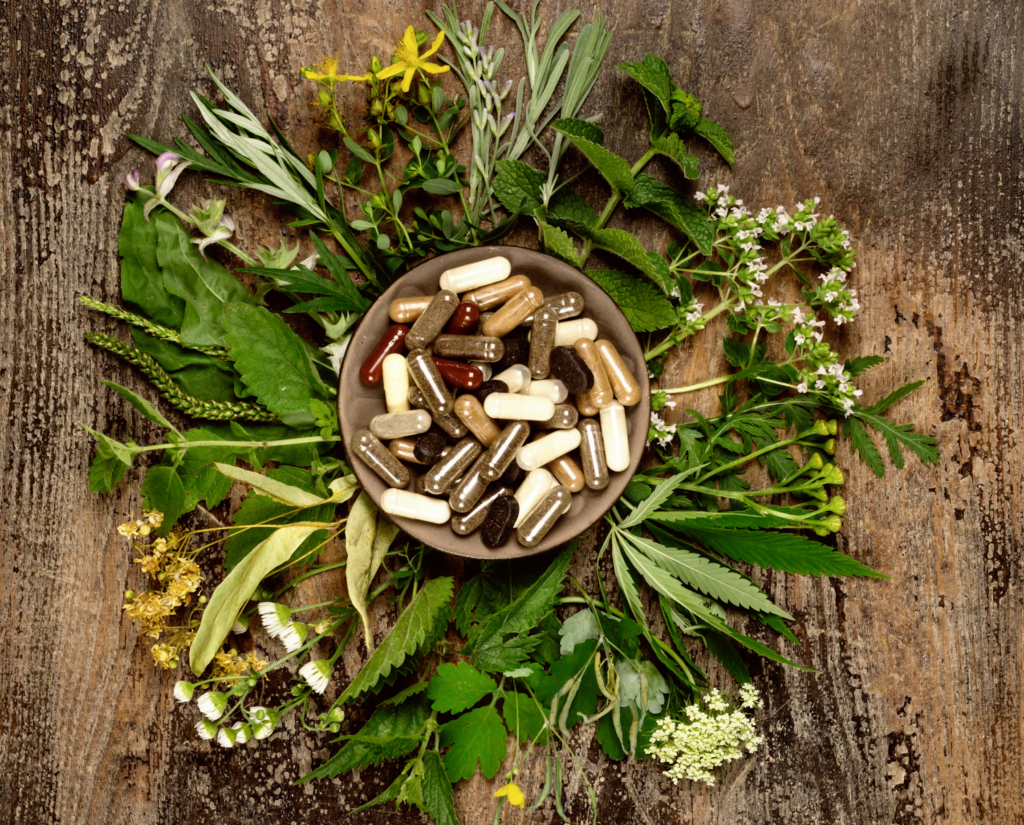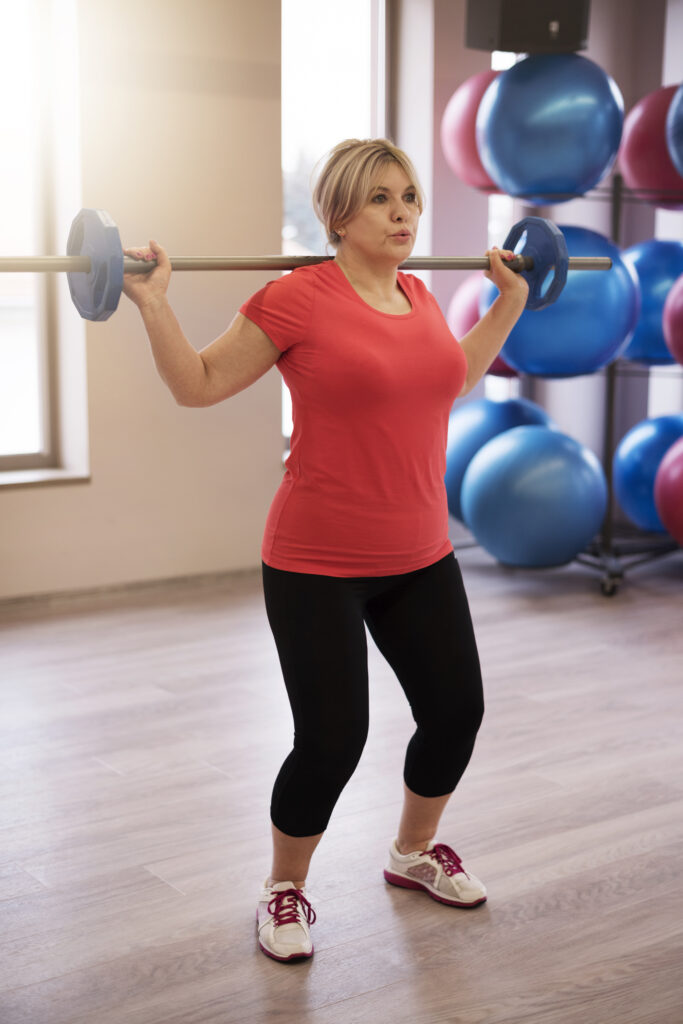Healthy aging and longevity are very popular topics in the media right now.
And there are many companies that would love to captilize on our fear of getting sick and dying.
So when it comes to aging and health there are many expensive products out there.
But buyer beware!

If you really want to protect your youthful features, it needs to be personalized to your unique needs.
Any reputable longevity expert would avoid telling you to take a bunch of supplements without doing genetic testing and other types of testing to find out what YOUR BODY needs.
So before you go out and spend a bunch of money on things like curcumin, phosphatidylcholine, resveratrol, fish oil, and CoQ10 (all expensive supplements), I recommend you start with the basics.
Healthy aging starts with the basics!
The following is a list of factors that are much more impactful in the aging process than ANY one supplement!
- Sleep Quality and Quantity
- Muscle Mass & Strength
- Physical Activity
- Inflammation Levels
- Social Relationships
Sleep Quality & Quantity
I have written several blogs that delve into the importance of sleep for healthy aging and how to optimize sleep.
Sleep is a crucial factor in longevity and quality of life.

Not only does sleep help you live longer, it helps reduce the risk of chronic disease and cognitive decline.
Muscle Mass & Strength
Muscle mass and all-cause mortality are inversely related.
In other words, the more muscle mass you have, the higher your chance of living a longer life.
Muscle mass also decreases the chances of developing pre-diabetes.
So, how do we develop and maintain muscle mass as we age?
It’s not so easy because there is a natural decline in muscle as we get older.
The first and most important step is to stay active in any way you can. Even walking, gardening, cooking, and cleaning can help.
If you are already doing that, then I recommend adding in a good strength-training routine.
Aim for at least one hour a week of strength training.

This can be done using your body weight (think push-ups and squats), resistance bands, or weights.
Whatever type of physical activity you choose, make sure you do it safely!
Injury can really slow you down!
I always recommend consulting with a professional personal trainer who is highly skilled to make sure you are doing things correctly.
My colleague and friend, Jeff Castaldo, is a local personal trainer here in Rockland County, NY with a high degree of training and experience. I highly recommend him!
Physical Activity
In addition to making sure you have good muscle mass, just being active is very important for healthy aging.
As a matter of fact, regular physical activity has been shown to be associated with an increase in life expectancy of up to 6.9 years!
Inflammation Levels
Inflammation can be caused by many lifestyle factors such as poor diet, infections, inactivity, stress, and toxins in our environment.
When it comes to aging and health it turns out that chronic inflammation can increase your risk for disease and early death.
Your genetic factors will have an influence on your susceptibility to chronic inflammation.

But I still recommend paying attention to these areas.
If you suspect you are experiencing chronic inflammation, this is definitely something to address with a nutritionist or functional medicine doctor.
Certainly, diet, exercise, stress management, and cleaning up your environment are all things we help our clients with.
And the more you improve those areas of your life, the less sensitive you may be to infection.
There is hope!!
It just takes a gradual positive shift toward better lifestyle habits!
Social Relationships
I saved the best one for last!
Your social relationships DO affect your quality of life and lifespan.
As a matter of fact, this is a HUGE factor that is just as important as other more commonly cited factors.
Did you know that there is a 50% (50%!!!) increased likelihood of survival for people with strong social relationships?

Cumulative empirical evidence across 148 independent studies indicates that individuals’ experiences within social relationships significantly predict mortality. The overall effect size corresponds with a 50% increase in odds of survival as a function of social relationships. Multidimensional assessments of social integration yielded an even stronger association: a 91% increase in odds of survival. Thus, the magnitude of these findings may be considered quite large, rivaling that of well-established risk factors.
Holt-Lunstad J, Smith TB, Layton JB. Social relationships and mortality risk: a meta-analytic review. PLoS Med. 2010 Jul 27;7(7):e1000316. doi: 10.1371/journal.pmed.1000316. PMID: 20668659; PMCID: PMC2910600.
This is quite significant!
So make sure that you continue with your close relationships as much as you can.
Often, when people retire they may lose a certain amount of social interaction.
That is why I strongly recommend that as we age, we all develop hobbies or join interest groups.
Common interests can really make it so much more fun!
If you are anything like me, you not only want to live a long life, you want to live a healthy, active, and fulfilling life!
Whatever age you are, it is never too late to start improving your habits.
If you are interested in longevity and healthy aging, I invite you to get on a call with me to explore how our program can help. Just click the button below to set up a call.
References
Mazzotti DR, Guindalini C, Moraes WA, Andersen ML, Cendoroglo MS, Ramos LR, Tufik S. Human longevity is associated with regular sleep patterns, maintenance of slow wave sleep, and favorable lipid profile. Front Aging Neurosci. 2014 Jun 24;6:134. doi: 10.3389/fnagi.2014.00134. PMID: 25009494; PMCID: PMC4067693.
Srikanthan P, Karlamangla AS. Muscle mass index as a predictor of longevity in older adults. Am J Med. 2014 Jun;127(6):547-53. doi: 10.1016/j.amjmed.2014.02.007. Epub 2014 Feb 18. PMID: 24561114; PMCID: PMC4035379.
Srikanthan P, Karlamangla AS. Relative muscle mass is inversely associated with insulin resistance and prediabetes. Findings from the third National Health and Nutrition Examination Survey. J Clin Endocrinol Metab. 2011 Sep;96(9):2898-903. doi: 10.1210/jc.2011-0435. Epub 2011 Jul 21. Erratum in: J Clin Endocrinol Metab. 2012 Jun;97(6):2203. PMID: 21778224.
Reimers CD, Knapp G, Reimers AK. Does physical activity increase life expectancy? A review of the literature. J Aging Res. 2012;2012:243958. doi: 10.1155/2012/243958. Epub 2012 Jul 1. PMID: 22811911; PMCID: PMC3395188.
Furman D, Campisi J, Verdin E, Carrera-Bastos P, Targ S, Franceschi C, Ferrucci L, Gilroy DW, Fasano A, Miller GW, Miller AH, Mantovani A, Weyand CM, Barzilai N, Goronzy JJ, Rando TA, Effros RB, Lucia A, Kleinstreuer N, Slavich GM. Chronic inflammation in the etiology of disease across the life span. Nat Med. 2019 Dec;25(12):1822-1832. doi: 10.1038/s41591-019-0675-0. Epub 2019 Dec 5. PMID: 31806905; PMCID: PMC7147972.
Holt-Lunstad J, Smith TB, Layton JB. Social relationships and mortality risk: a meta-analytic review. PLoS Med. 2010 Jul 27;7(7):e1000316. doi: 10.1371/journal.pmed.1000316. PMID: 20668659; PMCID: PMC2910600.
